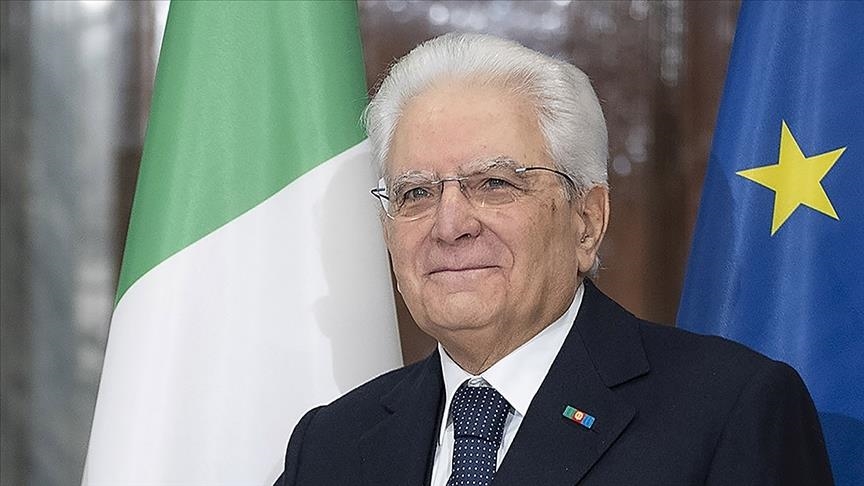Italy stalemate ends as Mattarella re-elected president
Deadlock was threatening survival of Draghi government
 File photo.
File photo.
ROME
Italy’s parliament on Saturday voted for President Sergio Mattarella to serve a second term, putting an end to a six-day stalemate that threatened the survival of the country’s government.
Mattarella, who needed at least 505 votes, received 759 out of 983 ballots cast in the lower house of parliament, with the far-right Brothers of Italy the sole party officially opposing him. Lawmakers broke into applause as the result was read out.
The 80-year-old, whose term was due to end on Feb. 3, had repeatedly said he did not want a second go at the seven-year presidency, but parties within Prime Minister Mario Draghi’s grand coalition turned to Mattarella after multiple failed attempts to find a successor.
In a short acceptance speech, he said Italy’s present challenges meant that “we cannot shirk the duties to which we are called, and of course they must prevail over other considerations and over different personal plans.”
Draghi hailed his re-election as “splendid news for Italians.”
Mattarella, a former Christian democrat minister and constitutional court judge who went into politics after his brother was slain by the Sicilian mafia in 1980, is the second president in a row, after Giorgio Napolitano, to serve a second term.
In Italy, presidents are the cornerstone of the political system, serving a seven-year tenure. Presidents name prime ministers, call elections, influence government policy discreetly and can veto laws or ministerial appointments.
Mattarella’s re-election means that Draghi, the former president of the European Central Bank (ECB), will continue leading the government. He had his own presidential ambitions, which were dashed.
“Keeping Mattarella in the Quirinale (presidential palace) and Draghi in the Chigi (prime ministerial palace) is the only way to preserve Italy from harebrained follies and lack of political direction,” Former Prime Minister Matteo Renzi wrote on Facebook.
Promoting Draghi to the presidency proved impossible as the disparate alliance of parties supporting his government – stretching from the center-left Democratic Party to the hard-right League – proved unable to agree on who could take his place.
There are concerns that the bad blood spilt during the failed negotiations on the presidency will make it harder for parties in Draghi’s coalition to keep working together. Looming general elections, due in early 2023, might offer another incentive for them to break ranks.
“This week of skirmishes has left behind some pretty bad scars,” said Francesco Galietti, the co-founder and chief executive officer of Policy Sonar, a Rome-based consultancy, questioning whether the government could return to business as usual.
The presidential election started on Monday and paralyzed national politics amid the raging COVID-19 pandemic, concern about rising energy costs, the urgency to implement reforms linked to EU funds, and the threat of war in Europe between Russia and Ukraine.
As things dragged for nearly a week, politicians faced mounting pressure to wrap it up as soon as possible








